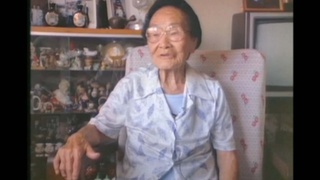Interviews
Training for football by carrying 100-lb bags of grass over mountains
When I was a ninth grade, I went to Lahainaluna. Where I was staying, I couldn't get transportation because it's six miles to Lahaina, and there's no transportation for me to go to school. So, I asked the coach that I could be a boarder and stay at the dormitory at Lahainaluna. So, they told me that they have room for me. So, I stayed at Lahainaluna two years, the freshman and sophomore year.
And my job there was every morning, I have to go and pick a hundred pound of grass to feed the cows because they had a farm there where they raise cows and pigs and chicken, ducks and lot of vegetables and things. See, they had about 125 boarders there, so they had to feed them and things. And a lot of times, the milk and lot of the eggs and things, they sell it -- go downtown and they sell it. So, that was my job. I'd get up 5 o'clock in the morning, my freshman, sophomore year, and I would go pick 100 pound. Sometimes I had to climb two mountains and 100 pounds on my back coming in. But, that really helped me in football because that really strengthened my legs.
Date: December 16, 2003
Location: Hawai'i, US
Interviewer: Art Hansen, John Esaki
Contributed by: Watase Media Arts Center, Japanese American National Museum.







